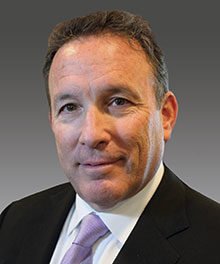U.S. News Revolt

Dozens of law schools and medical schools are refusing to send information to U.S. News & World Report for their annual rankings—among them some of the world’s most elite institutions—and the revolt is spreading to colleges. U.S. News, as the definitive resource for school rankings, has responded with an announcement that it’s introducing a brand-new law school ranking, but it seems like the genie is out of the bottle, and it’s going to be hard to get the schools to go along with this new initiative.
Given that Marcum employs many recent college graduates, anything that affects college admissions is relevant to us. One major argument against the ranking is that it discourages universities from admitting disadvantaged students. Universities can be penalized for admitting promising students who may have scored lower on admissions tests but still have good grades, or for admitting wealthier students who have the means to test-prep. Some opponents say the ranking penalizes schools whose graduates go into public service, as opposed to better-paying careers. And some feel that it’s hard to quantify the unique and intangible things their school offers to students.
In accounting, I’ve always found rankings to be a useful tool among many, to see how firms including ours compare to others in our field in various areas, whether for creating a great culture or for specific practice areas, like technology. It is always validating to be recognized for all of the work our team does to excel on many fronts. However, given that we’re in a math/analytics driven field, I’m also aware of how difficult it is to come up with accurate methodologies that account for the huge variations implicit in being measured and compared.
When it comes to evaluating college graduates, we don’t rely on the U.S. News ranking—or any other—to decide whether or not to recruit or give someone an interview. One reason is practical: Not every college or university offers the five-year accounting degree that we look for in most of our new hires. But beyond that, Marcum is absolutely committed to recruiting talent wherever the talent is. Our industry, and business in general, needs a more diverse workforce, and many of the best and brightest in our profession may not have the means to attend an Ivy League school. We’re determined to find them anyway. We’ll take a good work ethic over good grades every time.
As CEO of an accounting firm that serves entrepreneurs, it’s not lost on me that there are many routes to success, college being just one of them. Entrepreneurship is a field where some of the most famously successful icons didn’t go to college, or dropped out of school like Bill Gates, or went to schools you might not have heard of.
It’s not the classes you’ve taken or the degree you’ve gotten that determines your success. It’s how you apply what you’ve learned and your ability to bring grit and determination to building a business, even when the odds are stacked against you. Some of the world’s future billionaires may be watching videos on YouTube as I write this to pick up new coding skills or learn how to write a business plan.
As an employer, I hope the debate about the U.S. News rankings will prompt some much-needed conversation about what a college education can and should do for students. Firms like ours depend on a steady pipeline of talent from universities across the country. The better prepared students are for the workplace of the future, the stronger our profession will be.
